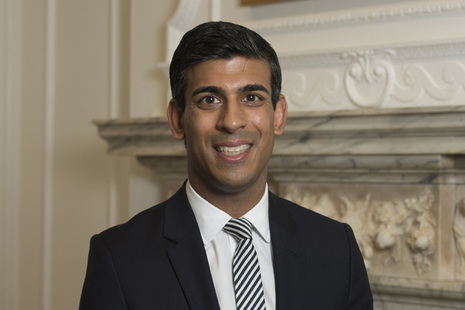Household Bills
Top takeaways from Budget 2020

Chancellor Rishi Sunak delivered his first Budget today. Here are some of the key points that could affect the pound in your pocket.
Coronavirus
The government has unveiled a £30bn rescue package to support the country through the coronavirus crisis.
Specific measures include extending sick pay to anyone who self-isolates even if they don’t present symptoms and refunds for small businesses for sick pay payments for up to two weeks.
Tax
The salary threshold at which employed and self-employed workers have to pay national insurance contributions is going up from £8,632 to £9,500, representing a tax cut for 31 million workers. The average employee will save £104 a year.
The tampon tax – a 5% VAT charge on women’s sanitary products – is being abolished.
Fuel and alcohol duties have been frozen, but tobacco duty is going up from 6pm on 11 March.
VAT on e-books, e-newspapers, e-magazines and academic e-journals is being scrapped.
Savings and pensions
The adult ISA limit will remain at £20,000 but the junior ISA limit is more than doubling from £4,368 to £9,000 from next tax year.
The number of people impacted by the tapered annual allowance – which affects how much higher earners can save into a pension tax-free in any year – will be dramatically cut under new rules. This measure was brought in to tackle the problem of senior NHS staff facing hefty tax bills for working overtime.
The lifetime allowance, the maximum amount someone can save tax-free into pensions over their lifetime, will increase in line with consumer price inflation for 2020-21, rising to £1,073,100 from £1,055,000.
Housing
A new stamp duty surcharge on non-UK residents at a rate of 2% from 2021 will be introduced.
The affordable homes programme will be extended with an extra £12bn.
Other points
Up to 12 weeks paid leave for parents with babies in neonatal care.
Investment in flood defences to be doubled to £5.2bn over the next five years.
£500m over the next five years to support the rollout of a fast-charging network for electric vehicles.
Robust regulation for prepaid funeral plan providers, bringing them within the remit of the Financial Conduct Authority.
Hospital car parking fees in England to be scrapped for patients with a disability and/or terminal illness and their families, patients with regular appointments, parents of sick children staying overnight and NHS staff working night shifts.